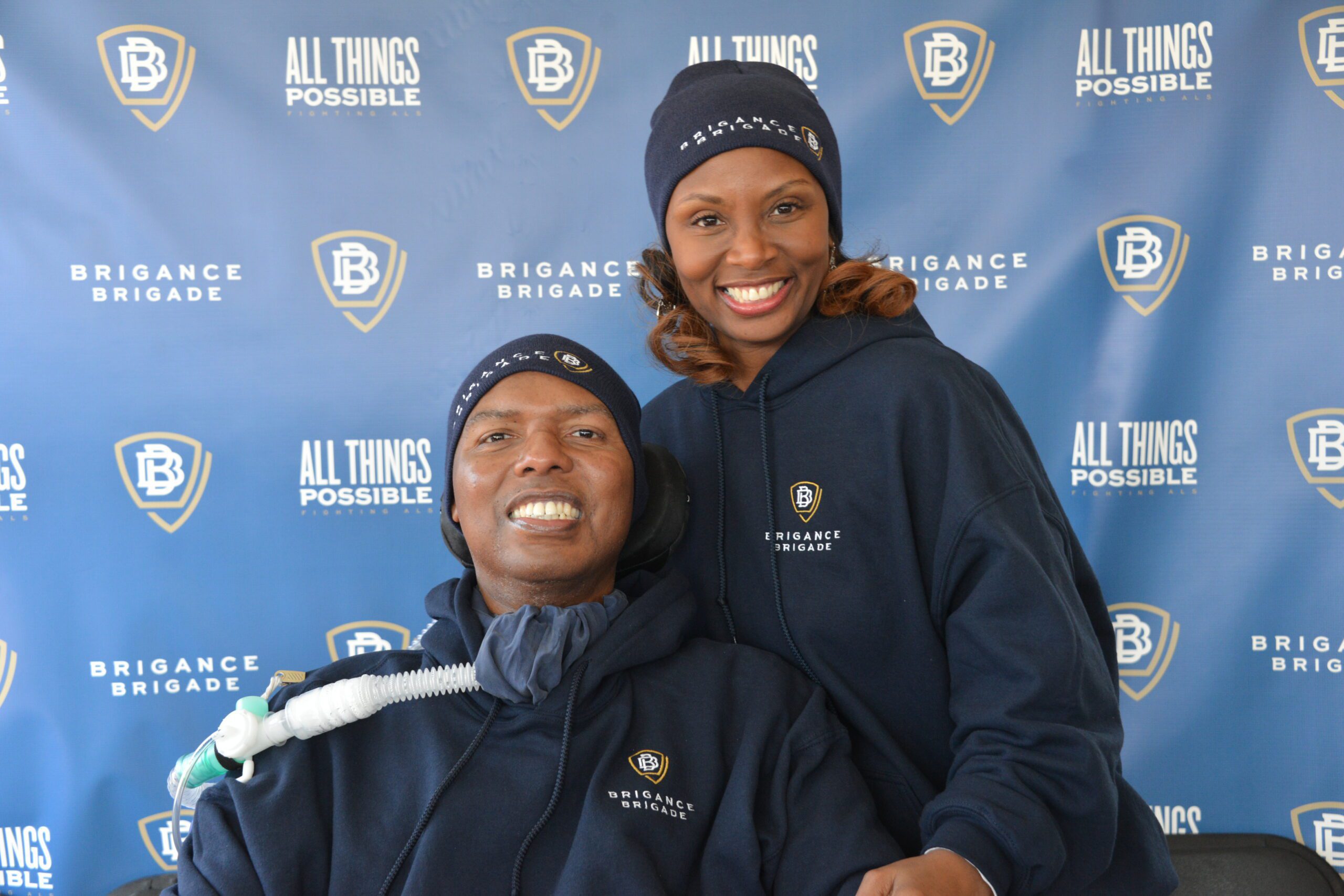What does it mean to be a caregiver for someone with ALS? As I sat down to think about the journey that I’ve been on as my husband Dan’s caregiver, 4 years post-diagnosis, I couldn’t come up with a simple answer. In my experience, caregiving has been multidimensional, about body and spirit, and is constantly changing; what he needs today is different from what he will need tomorrow. A caregiver is a juggler, a jack-of-all-trades, a psychologist, an interpreter, a mind reader.
That said, the aspiration of caregiving seems relatively simple to me – to enable the person with ALS to continue to lead the most expansive, richest life possible, even as life is becoming increasingly limited. And, at the same time, for the caregiver to continue to have his/her own life, relationships, and purpose. Simple, yes, but hard to achieve.
In the early days after Dan’s diagnosis, caregiving was primarily an emotional matter. It was about accepting the news, talking about how he felt, how we felt, decisions we would need to make, and how we might change our priorities. How and when would we tell our children, other family members, friends, and work colleagues? Our oldest son and daughter-in-law were expecting their first child, our first grandchild. We kept the diagnosis to ourselves for a month because we didn’t want to take away from their excitement and joy. We shed many tears. We resolved to make use of time while we had it to do what we loved doing (traveling…we went to see the northern lights in Sweden), and to spend more time with friends. At this stage, with evidence of ALS looming, but still largely hidden, the care went in both directions. We were emotional support for each other.
It got more complex as time went on. I/we tried to anticipate and prepare for the future. To address the physical changes that would occur. From the simple repurposing of hiking sticks for walking, to modifying our bathroom, ramping the entrance to our home, purchasing a wheelchair accessible van, and getting a feeding tube. Sometimes these adjustments weren’t needed immediately, and sometimes they came just in the nick of time. We hoped they would work. Throughout this time, Dan was largely positive, newly motivated to advance work on ALS research, in particular. He didn’t fight his body’s decline, but adapted to it. His attitude made it easier for all of us.
And, of course, there was the unexpected. After a couple of stints in ERs and hospitals, the last with pneumonia, Dan’s pulmonologist suggested that he have a tracheostomy, then and there. We were totally unprepared, but plunged ahead. The level of caregiving tasks increased precipitously – equipment, medication, insurance, aides, and scheduling. Not to mention the emotional support required alongside this enormous change, to deal with the fear, frustration, vulnerability, and instability.
Looking back, I miss the normalcy of the everyday that I took for granted. I have nostalgia for when he walked the dogs at night, did the dishes. Hugged me. Had dinner out with friends. Most difficult has been the anger when it has erupted, albeit rarely, born of the frustration of not being able to communicate. The inability to have a simple conversation together now, as his voice is almost gone. Seeing my active, loud, boundary-breaking spouse of 44 years diminishing. The not knowing – what he needs, how he is feeling, and, most especially, how long we have. Feeling more alone.
There are times that I reflect on and am amazed by what I can get used to. At the resilience of the human being, the will to live. I feel grateful for the slow decline and small change. And I try to keep gratitude uppermost. For the resources that allow us to have excellent aides. Dan’s amazing resilience and positivity, his continued involvement in life, in the people, and the activities that give him purpose. My ability to continue my own work and relationships. Seeing his face light up when he looks repeatedly, incessantly, at pictures of our 5 granddaughters. A walk in the park on a beautiful fall day, when he mouths enthusiastically, “This is great”! An afternoon at the theater together. Getting successfully through a meal without incident. Just seeing his face pop up on my phone when I am away – even if he can’t say much. I still have his eyes and his smile. There is intimacy and love in that.



